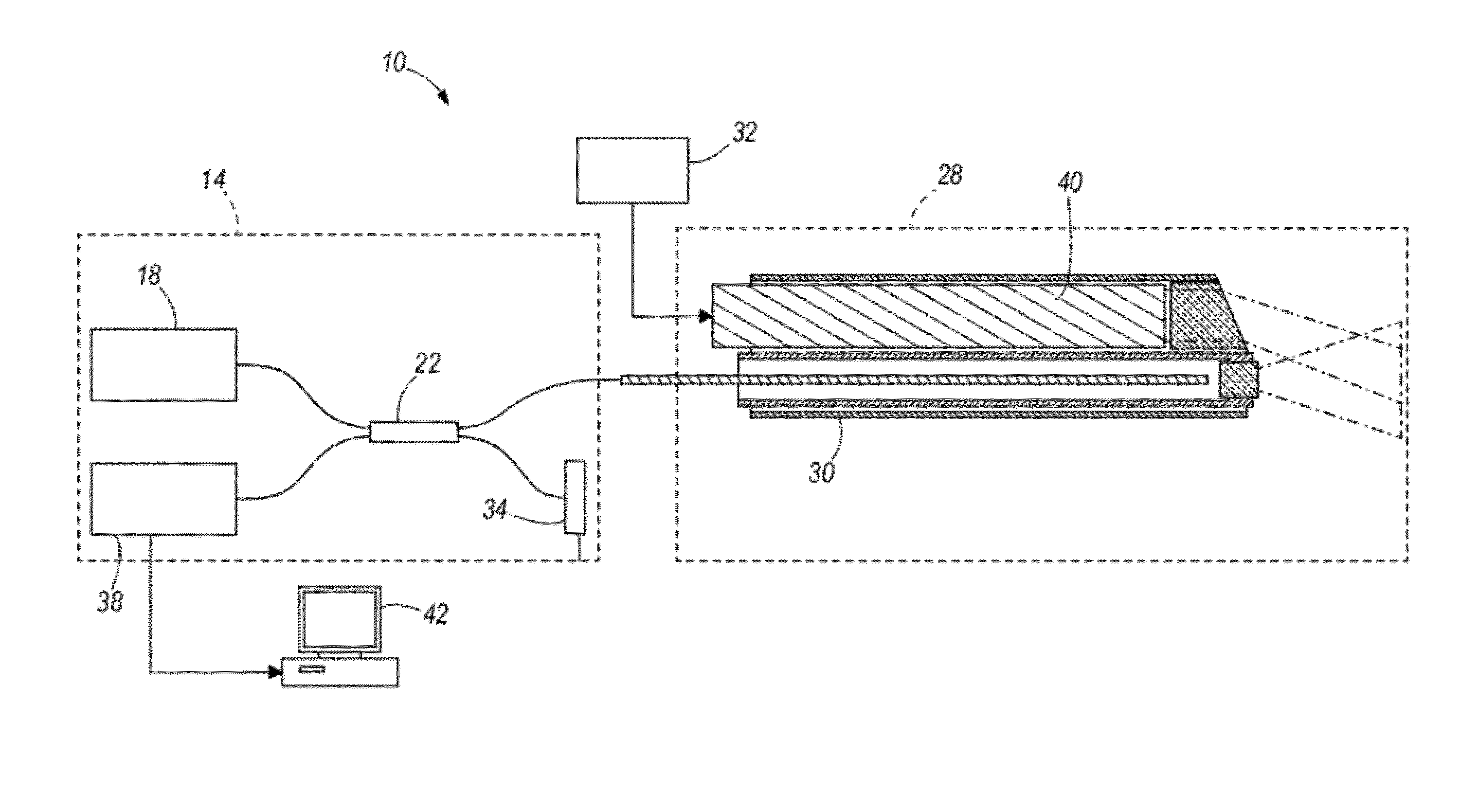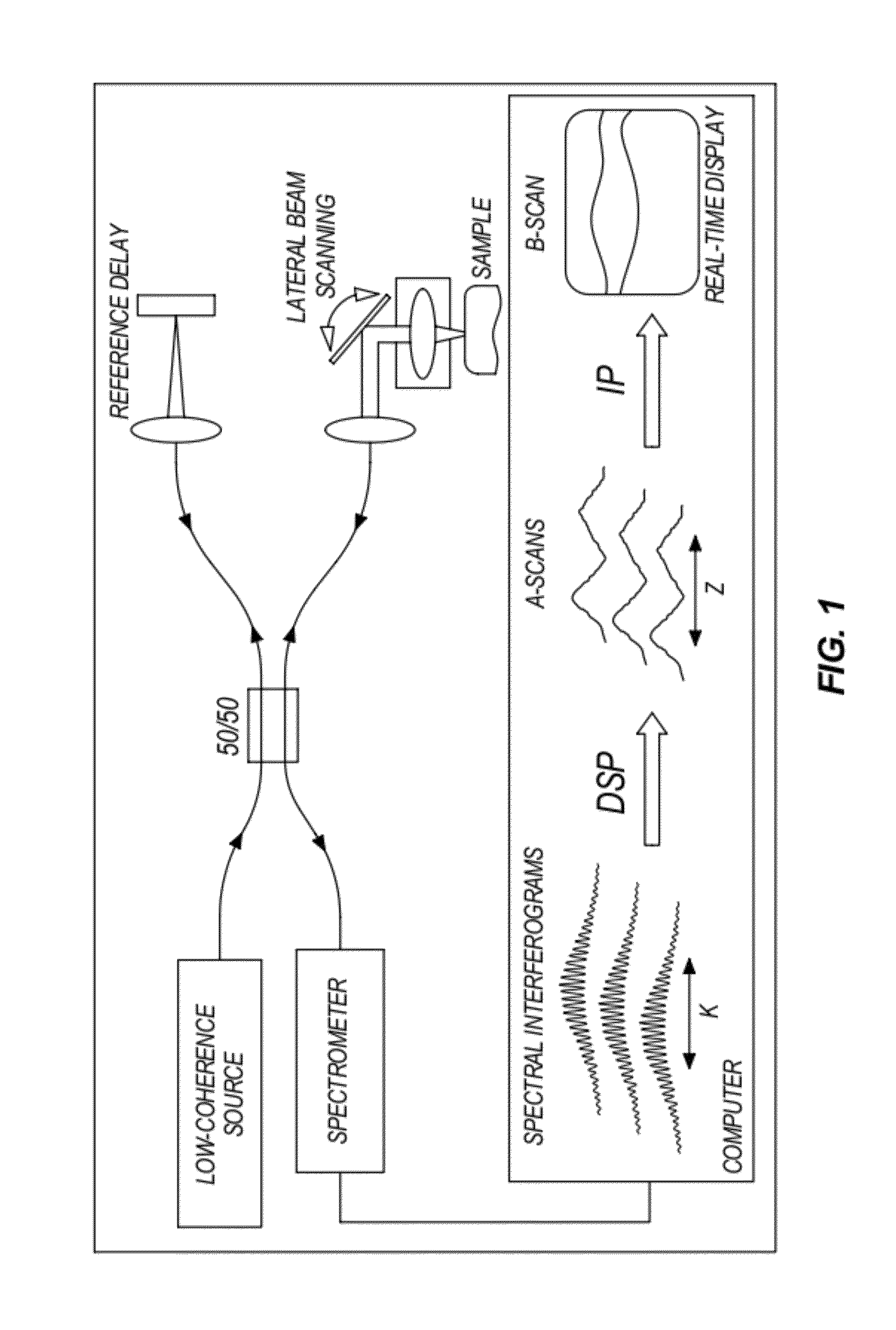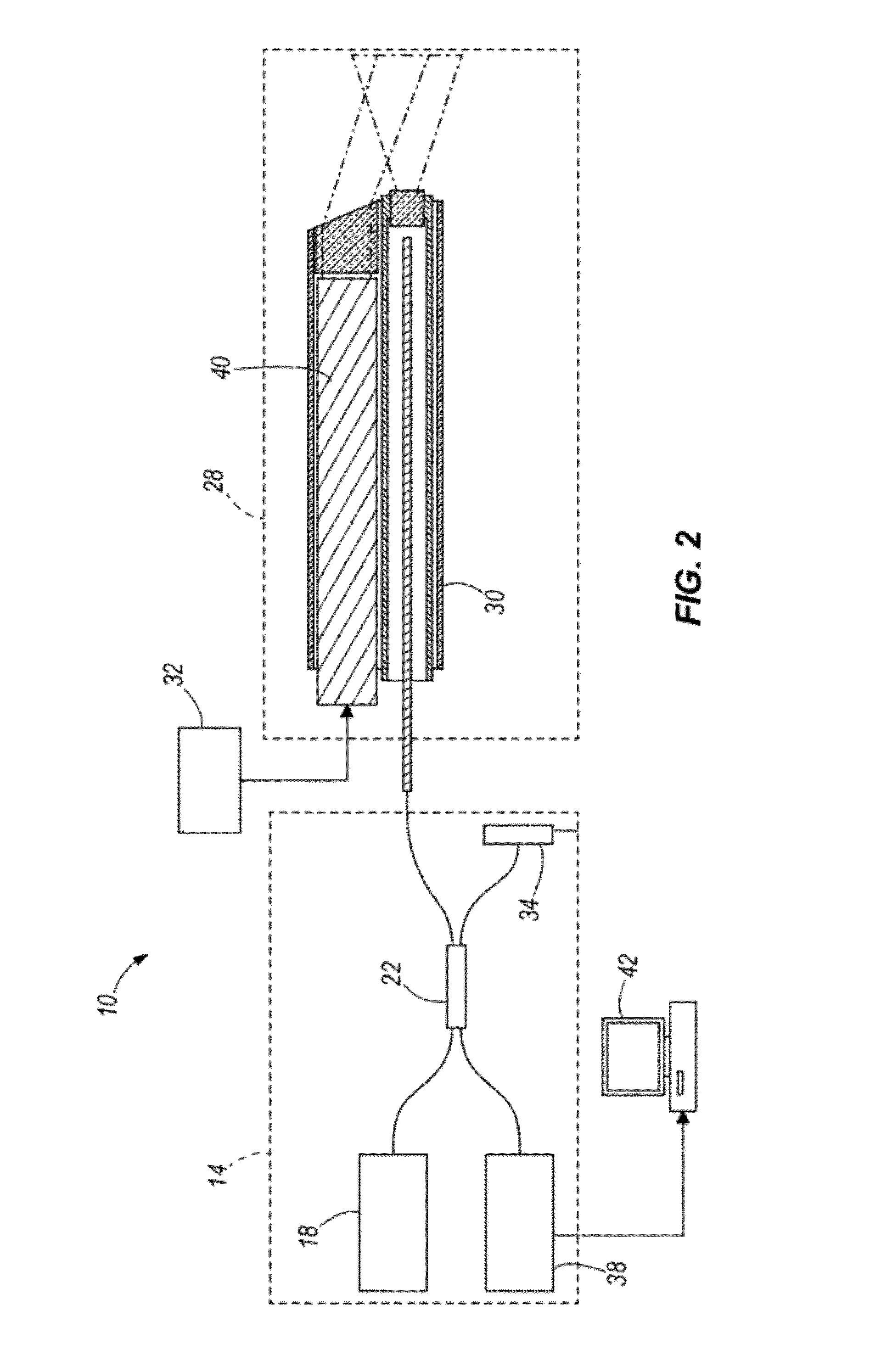Apparatus and method for real-time imaging and monitoring of an electrosurgical procedure
an electrosurgical and real-time imaging technology, applied in the field of apparatus and methods for real-time imaging and monitoring of electrosurgical procedures, can solve the problems of system inability to provide two-dimensional information, difficult judgment of incision depth, etc., and achieve the effect of improving imaging speed and resolution, and profound effect on ophthalmic imaging and diagnosis
- Summary
- Abstract
- Description
- Claims
- Application Information
AI Technical Summary
Benefits of technology
Problems solved by technology
Method used
Image
Examples
example i
[0077]INTRODUCTION: Several groups, including ours, have identified a wavelength at 6.1 mm produced by an experimental tunable free electron laser (FEL) as capable of ablating tissue with a minimal amount of collateral damage. This is desirable for precise incisions of tissue. This laser wavelength is at a water-absorption peak and is near the 6.0 mm Amide I protein peak in the collagen spectrum. Tissues which have been treated with this wavelength include articular cartilage, fibro-cartilage, skin, cornea, and optic nerve sheath.
[0078]Previously, we developed a robust hollow-glass waveguide intraocular probe to deliver this mid-infrared energy. The waveguides also were used to transect vitreous bands that were produced by injecting fibroblasts intravitreally in an animal model. Balanced salt solution (BSS) functioned well as the transmission medium. Another surgical medium, perfluorodecalin, also permitted retinal ablation by mid-infrared laser energy. However, the FEL is a cost-pr...
example ii
[0085]FIG. 41 illustrates real-time imaging which occurred with 6.1 μm laser ablation of retina with one construction of the device 700 as shown in the sequential images from a video.
PUM
 Login to View More
Login to View More Abstract
Description
Claims
Application Information
 Login to View More
Login to View More - R&D
- Intellectual Property
- Life Sciences
- Materials
- Tech Scout
- Unparalleled Data Quality
- Higher Quality Content
- 60% Fewer Hallucinations
Browse by: Latest US Patents, China's latest patents, Technical Efficacy Thesaurus, Application Domain, Technology Topic, Popular Technical Reports.
© 2025 PatSnap. All rights reserved.Legal|Privacy policy|Modern Slavery Act Transparency Statement|Sitemap|About US| Contact US: help@patsnap.com



